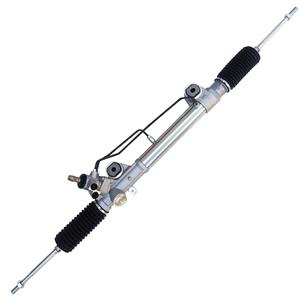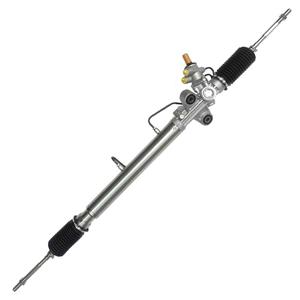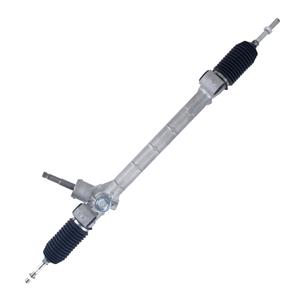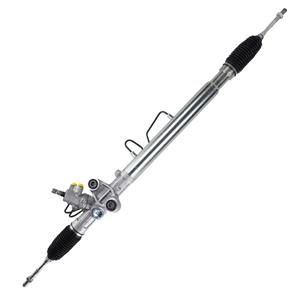Why do many people like hydraulic power steering?
In the progress of the automotive industry, the steering system, as one of the key technologies, directly affects the safety and comfort of driving. With the development of technology, the electric power steering system (EPS) has gradually become the mainstream choice of modern cars, but the hydraulic power steering system (HPS) still occupies an important position in the hearts of many drivers.
What makes the hydraulic power steering system so popular? Is it really better than the electric steering system? This article will explore these two questions in depth.
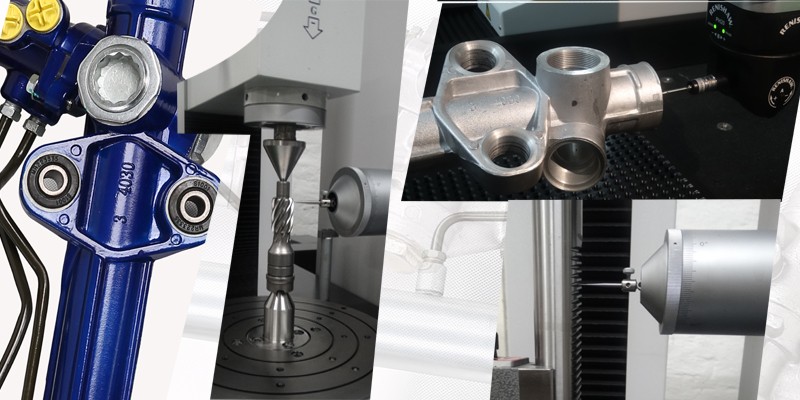
How does the hydraulic power steering system work?
Before exploring the advantages of the hydraulic power steering system, it is necessary to understand its working principle. The hydraulic power steering system works together through components such as hydraulic pumps, hydraulic oil, pipes and valves. The hydraulic pump is usually driven by the engine to generate pressure and push the hydraulic oil to the piston in the steering gear. When the driver turns the steering wheel, the hydraulic oil pushes the piston, thereby assisting the steering and making it easier for the driver to control the vehicle.
Hydraulic power steering systems rely mainly on the pressure of hydraulic oil to provide steering assistance, which makes the driving experience smoother, especially when driving at low speeds and parking.
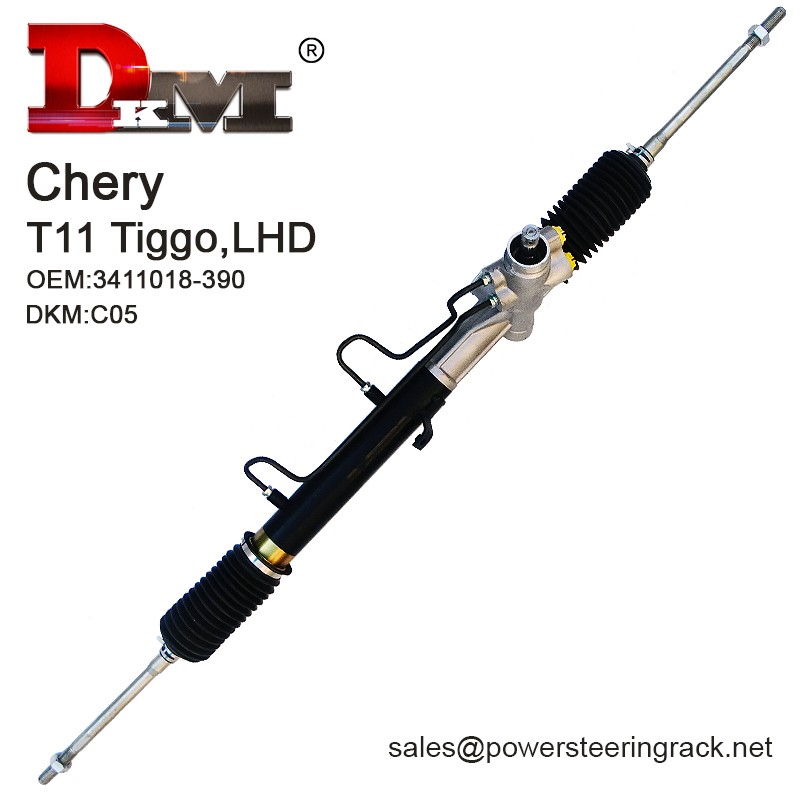
Why do many people like hydraulic power steering systems?
Despite the increasing application of electric steering systems, many drivers, especially car enthusiasts and professional drivers, still prefer hydraulic power steering systems. Here are the main reasons why hydraulic power steering systems are popular:
Excellent steering feedback
One of the biggest advantages of hydraulic power steering systems is its steering feedback. During driving, the hydraulic system can provide more road feeling information through the steering wheel, allowing the driver to clearly perceive the changes in the road surface and the status of the vehicle. This feedback not only enhances the driving pleasure, but also helps the driver to better control the vehicle, especially when driving at high speeds or on curves. This delicate feedback is particularly important.
In contrast, electric steering systems often weaken this direct feedback while pursuing lightness and fuel efficiency. For those car owners who pay attention to the driving experience, the real road feel brought by hydraulic systems is undoubtedly a major advantage.
Reliable mechanical design
Hydraulic power steering systems rely on mechanical and hydraulic components, which are usually designed to be very durable and reliable. Although the hydraulic system is more complex, its structure is mature and durable, and it has shown extremely high stability and reliability in long-term use.
Electric steering systems rely on motors and electronic control units. Although these components can provide flexible functions, they may be affected in complex use environments (such as extreme temperatures or long-term continuous use). Hydraulic systems are less dependent on electronic components and are more stable when dealing with various extreme driving conditions.
Better low-speed operability
Hydraulic power steering systems perform particularly well when driving at low speeds. Whether it is parking, turning at low speed, or driving on narrow roads, hydraulic systems can provide stronger power assistance, making steering wheel operation easier. This is especially important for drivers driving large vehicles or trailers.
Although electric steering systems can also provide power assistance at low speeds, they are usually not as natural and smooth as hydraulic systems. The progressive power assistance of hydraulic systems allows drivers to feel more linear steering changes at low speeds, thereby enhancing driving confidence.
Durability and easy maintenance
Although hydraulic power steering systems require regular replacement of hydraulic oil and inspection of hydraulic pumps, their maintenance work is generally simple and relatively low cost. Many drivers prefer to do-it-yourself maintenance of hydraulic systems because they are clearly structured and require fewer tools and less technical skills.
In contrast, electric steering systems contain complex electronic control units and motors, which usually require professional diagnostic equipment and higher repair costs once a fault occurs. For drivers who like to solve problems themselves, hydraulic systems are obviously more attractive.
Efficient energy transfer
Hydraulic power steering systems transfer energy through the pressure of hydraulic oil, and the energy transfer is direct and efficient. The hydraulic system automatically reduces the power assist at high speeds, which can maintain good steering accuracy and body stability. The power assist of electric steering systems is usually adjusted according to the speed of the vehicle through the electronic control unit. Although it is more flexible, its energy transfer efficiency is relatively low and the smoothness of adjustment is not as good as that of hydraulic systems.
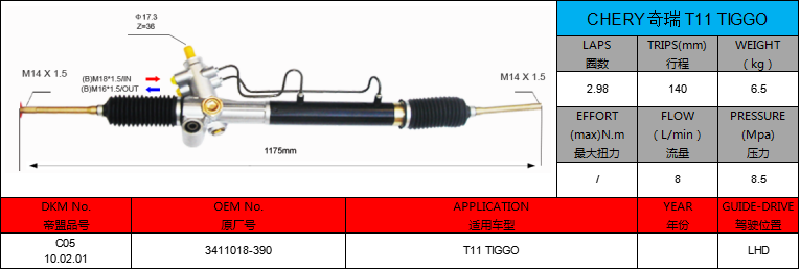
Is hydraulic steering better than electric steering?
When discussing whether hydraulic power steering systems are better than electric steering systems, multiple factors need to be considered, including driving experience, vehicle type, and usage environment. The following is a comparison of the two systems:
Driving experience
As mentioned above, hydraulic power steering systems have obvious advantages in driving experience, especially in steering feedback and low-speed operability. For those car owners who love driving and pay attention to the sense of control, the hydraulic steering system can provide a more realistic road feel and a more intuitive steering response.
However, the electric steering system also has its advantages. It can automatically adjust the power size according to the driving conditions, providing a more flexible driving experience. In addition, the electric steering system can usually realize more intelligent functions, such as lane keeping assist, automatic parking, etc., which have great advantages in the increasingly intelligent driving environment.
Energy efficiency and environmental protection
Hydraulic power steering system relies on the engine to provide power, so it may be slightly inferior to the electric steering system in fuel economy. The electric steering system only provides power when needed, so it can reduce the engine load, save fuel and reduce emissions.
For those car owners who pay attention to environmental protection and economy, the advantages of the electric steering system are more obvious. For drivers who pursue driving pleasure and performance, the slightly higher fuel consumption of the hydraulic steering system may be an acceptable compromise.
Applicable vehicle types
Hydraulic power steering systems are usually used in larger vehicles, such as SUVs, trucks and sports cars. When these vehicles are driving at high speeds and under heavy loads, the powerful power assistance and stability of the hydraulic system can bring a better control experience.
Electric steering systems are more common in small and medium-sized cars because the lightweight design of these vehicles is more compatible with the energy-saving characteristics of electric steering systems. In addition, the widespread use of electric vehicles has also prompted electric steering systems to become mainstream configurations.
Cost and maintenance
Although hydraulic power steering systems are relatively simple to maintain, they often have higher initial installation and production costs than electric steering systems. In addition, the hydraulic pumps and pipes of hydraulic systems may leak or fail in long-term use and require regular inspection and maintenance.
Due to the large number of electronic components, electric steering systems may have higher repair costs in the event of failures and require professional equipment for diagnosis. However, electric steering systems are generally more durable and do not require hydraulic oil replacement, so the maintenance cost in long-term use may be lower than that of hydraulic systems.
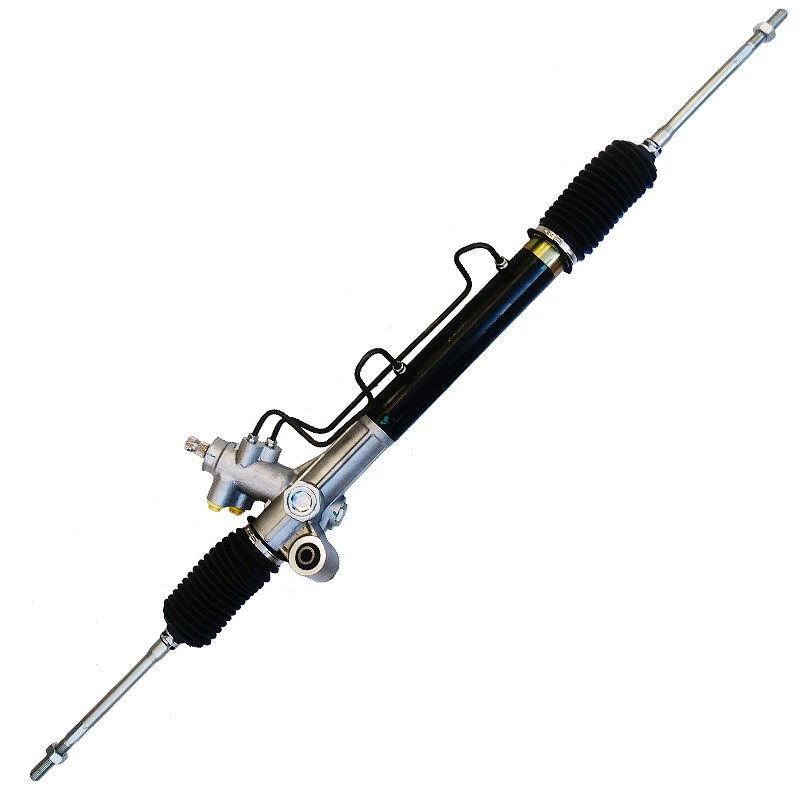
Is the hydraulic steering system worth choosing?
In general, hydraulic power steering systems still have a place in the automotive field with their excellent driving experience, reliable mechanical design and excellent low-speed operability. For those car owners who pursue driving pleasure and value control, hydraulic steering systems are undoubtedly an ideal choice.
However, electric steering systems have gradually become the mainstream configuration of modern cars due to their environmental friendliness, intelligent functions and lower fuel consumption. For car owners who focus on economy, environmental protection and driving assistance functions, electric steering systems may be more attractive.

